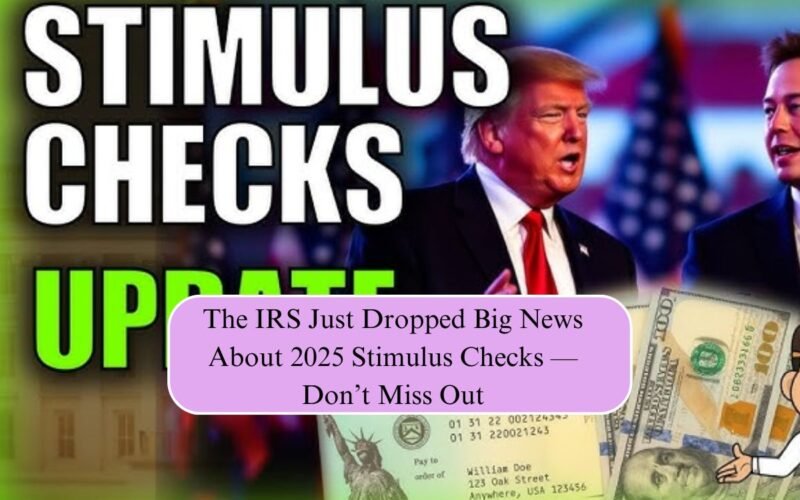The IRS has just made an important announcement about 2025 stimulus checks, and millions of Americans are eager to know what it means for their wallets. While there is no official fourth round of nationwide stimulus checks, the IRS has confirmed that certain groups of taxpayers will still receive payments in 2025. These payments include missed Recovery Rebate Credits, tax refunds, and state-level relief efforts. Here’s everything you need to know about the latest IRS update and how you can make sure you don’t miss out on any money you’re owed.
The IRS Confirms More Stimulus Payments Are Coming
The IRS recently confirmed that it will continue sending out stimulus-related payments through 2025 as part of its ongoing effort to resolve missed and delayed refunds from previous relief programs. These payments are not part of a brand-new federal stimulus bill but are instead corrections and catch-up payments from the 2020 and 2021 stimulus rounds. This means if you were eligible for the earlier Economic Impact Payments or the Recovery Rebate Credit but never received them, you could still get your money this year.
Who Qualifies for the 2025 Stimulus Payments
The new wave of payments primarily targets taxpayers who missed their original stimulus checks. You may be eligible if:
- You did not receive one or more of your original stimulus payments from 2020 or 2021.
- You were eligible for the Recovery Rebate Credit but didn’t claim it on your 2021 tax return.
- You recently filed a late tax return that included an unclaimed credit.
- You meet the income requirements set under the original stimulus payment guidelines.
Individuals with valid Social Security numbers, U.S. citizenship or residency, and income below the IRS limits are among those who could qualify. However, those who already received their full stimulus or exceeded income thresholds will not be eligible for additional payments.
How to Check If You’re Getting a Payment
If you think you may qualify, the first step is to review your previous tax returns. Specifically, check whether you claimed the Recovery Rebate Credit on your 2021 filing. If you didn’t, you may still be able to claim it by filing or amending your return. The IRS is also automatically identifying taxpayers who missed out on payments and issuing deposits directly to their bank accounts.
For those without direct deposit set up, paper checks will be mailed to the address on file. It’s important to ensure your information with the IRS is current to avoid payment delays.
When to Expect the 2025 Payments
Payments are expected to continue rolling out throughout 2025, with priority given to taxpayers who filed recently or corrected their information. Direct deposits are typically processed faster, while mailed checks may take several weeks to arrive. The IRS has stated that these payments will continue until all eligible recipients have received their owed funds.
What This Means for Taxpayers
This latest IRS announcement is great news for millions of Americans who missed previous stimulus payments. Even though no new federal stimulus bill has been approved, this effort ensures that anyone who qualified but didn’t receive their funds will finally get what they’re owed. Checking your eligibility now could mean a significant payout in the coming months.
FAQs
1. Is this a new round of stimulus checks?
No, this is not a new stimulus program. These payments are for individuals who missed their previous stimulus checks or didn’t claim the Recovery Rebate Credit.
2. How much money could I receive?
Eligible taxpayers may receive up to $1,400 per person, depending on the payments they previously missed and their eligibility.
3. Who qualifies for these payments?
You may qualify if you are a U.S. citizen or resident with a valid Social Security number, were not claimed as a dependent, and met income requirements during 2020 or 2021.
4. How will the payments be sent?
Payments will be sent either by direct deposit or paper check, depending on what information the IRS has on file.
5. When will the payments arrive?
The IRS is processing payments throughout 2025. Direct deposits are typically faster, while mailed checks can take several weeks to arrive.

